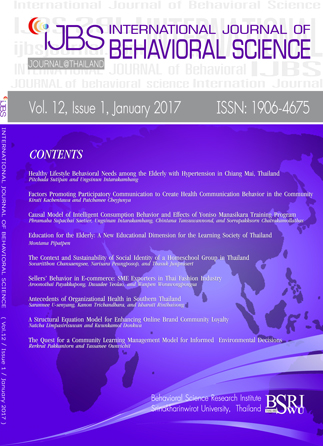Causal Model of Intelligent Consumption Behavior and Effects of Yoniso Manasikara Training Program
Main Article Content
Abstract
The purposes of this multi-method study were to examine a causal model of intelligent consumption behavior (ICB) and the effectiveness of yoniso manasikara (YM) training program (YTP) for grade 6 students in Bangkok. The samples in phase 1 were 564 students, assessed using questionnaires. Phase 2 consisted of 60 students, used in an experimental research with completely randomized one-factor pretest, posttest and follow-up design. Data were analyzed using LISREL, MANCOVA and MANOVA. The results in phase I showed that the variables that directly influence ICB and YM (referred to as the reasoned consideration and reflection process according to Buddhist teaching), were family factors and directly influenced ICB. The factors that indirectly influenced ICB through YM were family and kalyanamitra factors (good friends). In phase II, it was found that in time 2, students who trained in the YTP along with family support program (group A), and students who trained in the YTP only (group B) had higher YM scores than students untrained in the program (group C). In time 3, group A and group B had higher ICB and YM scores than group C. Meanwhile, group A had higher ICB and YM scores than group B. In addition, the statistically significant change of training type in group A, and time on YM in time 2, 3, and 4 were found. Results showed that group A had the best scores. Thus, students should be trained using both programs for developing ICB and other desired behaviors in different environments.
Keywords: yoniso manasikara, intelligent consumption behavior, family effect


